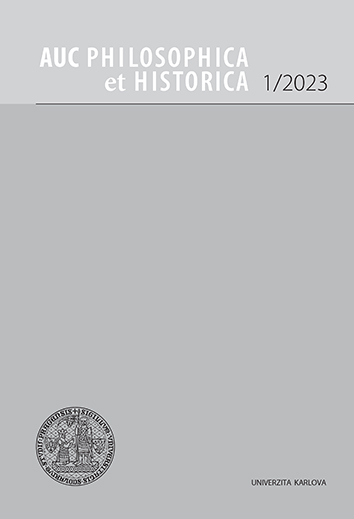AUC Philosophica et Historica je víceoborový akademický časopis zaměřený na humanitní a společenskovědné obory (filozofie, psychologie, pedagogika, sociologie, obecné, české a hospodářské dějiny, pomocné vědy historické a archivnictví, etnologie).
Časopis je indexován v databázích CEEOL, DOAJ a EBSCO.
AUC PHILOSOPHICA ET HISTORICA, Vol 2001 No 1 (2004), 149–163
Český učitel mezi občanstvím a profesionalitou
[The Czech Teacher between Citizenship and Professionalism]
Richard Růžička
DOI: https://doi.org/10.14712/24647055.2018.42
zveřejněno: 12. 01. 2018
Abstract
This article is a theoretical-empirical study using data from research by the author and others. Its general argument is that the considerable demands and expectations for structured and at the same time autonomous behaviour made on the teaching profession by state and public opinion – and derived both from ideas of the division of labour and civil rights – naturally do not automatically lead to sub-missiveness or the spontaneous shouldering of a greater level of responsibility on the part of teachers. Nonetheless in autonomous expressions and in the standardisation of their behaviour Czech teachers confirm the word-wide homogeneity of teachers as a socio-professional group. The article assesses the level and quality of teachers' readiness to engage in active citizenship and training for citizenship. It notes the „contents stratification“ of civic behaviour including its political level (and contradictions within it) and analyses the external influences on expressions of citizenship (such as „social exhaustion“ from the previous political system or the conspicuous general weakening of societal pressures accompanying the transformation of society, and then specifically the development in the cultivation of political toleration and suchlike). It investigates the value of the social division of labour and processes of professionalisation as potential threats to the autonomy of teachers' actions, but also as possible supports for such autonomy. It assesses the so-called „civic dimension“ of action as part of the teacher's professional competence. In conclusion it comments on the possibilities of autonomy in professional self-control and restructuring of the teaching professions (and the possible role of sociology in this). It ends with a hypothesis about the weakest place in the sociological side of self-reflection among teachers – i.e. the level or depth of the teachers' need to understand his or her own social position and with it the interest context of the profession.
